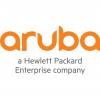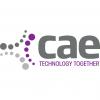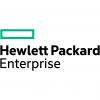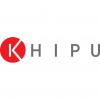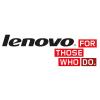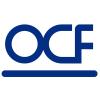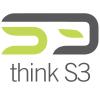ICTF Conference 2017
| 08:15–09:25 | Registration with Tea, Coffee and Danish. | ||
| L1 | 09:25–09:30 | Introduction. |
Riaz Khimji, ICTF Chairman |
| 09:30–09:40 | Welcome. |
Anne Trefethen, IT Services |
|
| L1 | 09:40–10:30 | Theft, Extortion and Kidnap in the 21st Century. | Martin Lee, Cisco |
| 10:30–10:35 | Walk to Breakout Session A. | ||
| Various | 10:35–11:15 | Breakout Session A. | |
|
11:15–11:40 |
Tea, Coffee and Cupcakes. | ||
| 11:40–11:45 | Walk to Plenary Session. | ||
| L1 | 11:45–12:35 | Us and AI. | Andrew Fryer, Microsoft |
| 12:35–12:40 | Walk to Breakout Session B. | ||
| Various | 12:40–13:15 | Breakout Session B. | |
| 13:15–14:10 | Lunch. | ||
| L2 | Lunchtime Drop-In Session. | Thomas Briggs, Bletchley Park | |
| 14:10–14:15 | Walk to Plenary Session. | ||
| L1 | 14:15–15:05 | Big Data Machine Learning in Higher Education. | Steven Butschi & Brian Gibson, Google |
| 15:05–15:10 | Walk to Breakout Session C. | ||
| Various | 15:10–15:50 | Breakout Session C. | |
| 15:50–15:55 | Walk to Photo. | ||
| 15:55–16:00 | Group Photo. | ||
| 16:00–16:25 | Tea, Coffee and Popcorn | ||
| 16:25–16:30 | Walk to Plenary Session. | ||
| L1 | 16:30–17:15 | New digital realities: How the Information Age is affecting lives around the world | Amy O'Donnell, Oxfam |
| 17:25–17:55 | Prize Draw. | ||
| 17:55–18:00 | Head to the Evening Event. | ||
| 18:00 | Maths Building Closes. | ||
| Ashmolean Museum | 18:20-21:00 | Guests begin to arrive via the grand entrance, and are taken through to the First Loop where they are greeted by smiling staff offering trays of reception drinks and nibbles. | . |
Plenary Talks
Theft, Extortion and Kidnap in the 21st Century |
Martin Lee, Cisco |
|
The Internet and new technology is creating many developments in our personal and professional lives, but also in the realm of illicit gain. Recognising how traditional crime models are being adapted to the 21st century allows us to understand and predict changes in the threat landscape. There is no such thing as a new crime, but there are many new opportunities for the technologically proficient criminal. |
|
Us and AI |
Andrew Fryer, Microsoft |
|
Today Artificial Intelligence is still some way away, but in certain areas computers are learning, and making predictions as well as or better than humans. In this talk we’ll quickly look at the history to understand what is available today and where this technology is going 5 – 10 years from now. To make this real I’ll be sharing projects I have worked on as well as the cutting edge work done at Microsoft Research. I also want to touch on some of the social and ethical issues that AI raises. |
|
Big Data Machine Learning in Higher Education |
Steven Butschi & Brian Gibson, Google |
|
Join Google to hear how advances in Big Data and Machine Learning are changing the way universities operate. Google itself has over the past ten years re-architected many of its services, such as Google Photos and Google Translate, to take full advantage of machine learning capabilities. In this session we will talk about machine learning use cases in education: from admissions and student engagement to learning analytics & the student lifecycle. We will also talk about some of the open source technology Google is developing, such as Kubernetes and Tensorflow, that is helping speed up the development process. |
|
New digital realities: How the Information Age is affecting lives around the world |
Amy O'Donnell, Oxfam |
|
The digital landscape is opening opportunities for the way people around the world communicate, access information and services, financially transact and have a say in discussions which affect them. At the same time, we have to ask questions about who is benefitting from these opportunities - and who is missing out. From monitoring water points to distributing cash in emergencies, Oxfam has been exploring the role that new information communications technologies are changing the way communities with whom we work engage with each other, with services and with us. This talk with share some successes where we have seen time and money savings, improved security and accountability, more people reached or more responsive programming based on evidence. We'll then discuss challenges and approaches in ensuring appropriate and responsible adoption of new technologies in contexts of international development and humanitarian response. |
|
Evening Event
Ashmolean Museum |
|
| After the conference, we will be heading to the Ashmolean Museum, where the first and second floor have been booked especially for conference attendees. Guests will arrive via the grand entrance and go through the First Loop where smiling staff will offer trays of reception drinks and nibbles. You will be able to enjoy the art, archaeology and the rich collection from around the world. A brief talk will be provided by Dr Paul Roberts, the newly appointed Sackler Keeper of Antiquities at the Ashmolean Museum. Drinks service will draw to a close around 20:30. | |
Breakout Session A |
10:35–11:15 |
||||
L1 |
Migrating Nexus Email to Office 365 – the story so far… |
Chris Mackie |
|||
| The University of Oxford is migrating the Nexus Email and Calendaring service to Microsoft O365 later this year. This talk will not be a project update but a look at the project through the eyes of the Nexus Service team. Chris will talk about the work that has been done to date, the technicalities of how 40,000 users will be migrated to O365 and the challenges that have been faced. | |||||
L2 |
Agile Networking – why you need to stop configuring your network and start configuring your user experience |
Steve Harrison |
|||
| Today SDN technology and cloud-centricity is rewriting the rules for how networks are designed, built and managed. Network engineers will need to adopt new skill sets and accept a much more dynamic and self-configuring environment in order to meet the demands of tomorrow’s applications and users. | |||||
L4 |
Systems monitoring and alerting with Zabbix |
Chris Causer |
|||
| IT Services' Networks Development and Support team makes use of various software for monitoring switches and servers, including Zabbix. This talk gives a rough overview of Zabbix's features, why we like it, and the opportunity to grill a team that picked software that wasn't based on Nagios. | |||||
C1 |
Mosaic |
Ruth Mason |
|||
| Oxford Mosaic is the University's new Web Publishing Platform. After nearly a year running in Preview, the platform has now been launched as a fully supported service, with more than 80 sites already provisioned on the platform. Come and hear how the Service will help you and your users create engaging public websites on the platform and learn what great new features we've added to it in our current exciting project: building a platform that can deliver the world-class sites needed by the University's museums and gardens, starting with a new website for the Ashmolean. | |||||
C2 |
Enterprise Architecture and an overview of TOGAF |
Martin Jones |
|||
| Martin will explain the role and purpose of Enterprise Architecture and provide an overview of The Open Group Architecture Framework (TOGAF). He will explain why it has become increasingly important within large organisations challenged to manage increasingly complex legacy systems and infrastructure and balance this with new business needs based around digitisation. Martin will offer insights into some real world examples where organisations have used Enterprise Architecture to become more efficient and responsive to change. | |||||
C3 |
What’s app, Docker? An overview of application deployment using Docker |
Matthew Buckett |
|||
| Docker is an open-source project that automates the deployment of applications inside software containers. A container wraps up a piece of software in a complete filesystem that contains everything it needs to run: code, runtime, system tools, system libraries – anything you can install on a server. This talk provides an introduction to Docker covering what it is and why you might be interested in it. Then some examples of how we've used it in the WebLearn team for development and production and where it's worked well and some of the problems we've had. Some familiarity with a Linux/UNIX command line environment is assumed. | |||||
Breakout Session B |
12:40–13:15 |
||||
L1 |
Introduction to Penetration Testing and Exploit Development |
Freddie Barr-Smith |
|||
| Exploits are the methodology by which it is possible to subvert the intended functionality of a piece of software. They are typically used as the initial attack vector to install a piece of malware or to directly control an affected system. Penetration testing or 'red teaming' is the method by which the security of a given asset or group of assets is tested by simulating an attack on these assets using the method an attacker would use. In this presentation, I would like to show you some of the tools and techniques by which exploits are developed and deployed in order to damage or disrupt a target system. | |||||
L2 |
Decoding Bletchley Park |
Thomas Briggs |
|||
| A potted history of Bletchley Park's codebreaking operations in World War II. | |||||
L4 |
Control vs Collaboration: evolving an Agile Approach in Cambridge’s archaotic environment |
Sibel Allinson, Karen Fernandes, Simon Redhead & Nick Martin |
|||
| (Archaios: αρχαίος - “ancient things”, Chaos: χάος - “the primordial state of existence”) ‘Archaotic’ acknowledges that the most ancient extant things are often the most successful, despite the surrounding chaos, which is the fundamental state of existence. Improving the way we deliver software in this environment depends on the way we approach software development. In an agile environment, establishing Firm Foundations and building incrementally to deliver real business benefit as early as is practical. Although, it is essential to be in control of a software project, it is vital to ensure transparency of work being performed, and have clear and continuous communication for teams. As such terms such as ‘control’ and ‘collaboration’ can sound like competing principles, maybe like ‘waterfall’ and ‘agile’. In reality these are outdated terms and false dichotomies. We have discovered that control is not something imposed from outside, but is generated from within, through collaborative working practices. The nexus of collaboration encompasses the entire business context, and automatically produces the best possible result. All that is left is to monitor its success! We do not deny but instead work with this reality, by keeping what is best, and continuously improving everything else. | |||||
C1 |
Life after GOWN |
Henryk Glogowski |
|
||
| Following on from the GOWN Project, what is IT Services proposing to do to enhance the ‘Wi-Fi experience’ for our staff, students and visitors? This is meant to be an interactive session. I want to hear what the community thinks as well as communicate some of the proposals we have. | |||||
C2 |
Situational Awareness for Teams: Cooking, Surgery and Fighter Pilots |
Andrew Lenaghan |
|||
| Why do some teams and individuals thrive under pressure and others struggle? We look at how people build an understanding or 'big picture' of complex and changing situations and how this enables them to make decisions and to take action. We look at what it means to have good or (indeed poor) situational awareness and we extend this into how teams work to share their understanding of a problem in ways that can help or hinder the team's effectiveness. | |||||
C3 |
Negotiation |
Owen Darbyshire |
|||
| Negotiation: Working with a range of stakeholders on projects, SLAs, Servie Management and support; IT Staff increasingly rely on effective negotiating at all levels. Owen Darbyshire - the Rhodes Trust Associate Professor in Management Studies (Organisational Behaviour and Industrial Relations) at Saïd Business School, University of Oxford and Sue Cormack Fellow at Pembroke College, University of Oxford - will show the key principles and context for improved, skilled negotiation. | |||||
Lunch Time Drop In Session |
13:15-14:10 |
||||
L2 |
Lunchtime Enigma Demonstration Drop-In |
Thomas Briggs |
|||
| An informal, drop-in activity in which attendees will see a real Enigma machine, understand how it works, and use it to encrypt and decrypt simple messages. They will also be able to ask any questions which may have arisen after the "Decoding Bletchley Park" talk. | |||||
Breakout Session C |
15:10–15:50 |
||||
L1 |
Augmented Reality in Museums and Visual Remote Guidance (using smart glasses) |
Ronald Haynes |
|||
| Enhanced and innovative interactions, both for technical support and collaboration and for special museum tours and exhibitions, are novel areas for creative Augmented Reality (and potentially some VR) techniques explored in this breakout. AR can enhance virtual support and guidance by accompanying talk with a controllable visual overlay on the local physical environment. Adapting HP's idea of high-end engagement between remote colleagues can help better share, understand and resolve distant difficulties. For museums, by carefully using AR for assembling related objects from multiple collections, visitors and researchers can benefit from greater and more coherent experiences in a blended collection environment. Introduction to the Veholder (Virtual Environment for Holdings and Online Digital Educational Repositories) community project will be included, with information about initial work to help reciprocally share materials which otherwise remain hidden in storage or in distant repositories. This session also includes an overview of AR/VR technologies, along with a demonstration of Epson's Moverio smart glasses. | |||||
L2 |
Codes and Ciphers |
Thomas Briggs |
|||
| a whistlestop tour of some encryption methods used throughout history, up to the Enigma machine. | |||||
L4 |
Tackling the University's Identity Management Challenge |
Alexander Dutton, David Farren, Anu Banerjee & Christopher Hoskin |
|||
|
Identity Management is the combination of processes and technologies which enable the assignment, management and retrieval of an agreed set of attributes about any given person. Identity management often serves to provide a source of consistent, authoritative and accurate attributes to uniquely identify individuals and as the basis for a number of administrative services, e.g. records management, access control. The existing Identity Management stack has evolved in a piecemeal fashion over the last 25 years. There are a number of issues in sustaining this approach, including key person dependencies, inflexibility, difficulties in exploiting new opportunities and suboptimal user experience. The Identity Management project will tackle this challenge through the commissioning and introduction of a new system capable of managing the identities of all people needing to interact with the collegiate University. |
|||||
C1 |
InfoSec |
Jonathan Ashton & John Kinsey |
|||
| An information security review of Brasenose College | |||||
C2 |
Glamourising the GLAM Strategy |
Jon Ray |
|||
|
In Summer 2016 the University of Oxford brought together its gardens, libraries and museums (GLAM) into one department. As part of this, a GLAM Digital Strategy was agreed to overhaul the digital collections - how people access, how we preserve and curate collections as well as the underlying IT infrastructure and applications. This session will cover how GLAM is starting to work together across six different institutions to deliver its joint vision. |
|||||
C3 |
Advanced Research Computing: Systems and Applications |
Dai Jenkins |
|||
| The provision of close-coupled, high-performance computing resources for HPC applications such as modelling and simulation continues to be a key enabler for research delivery across the engineering, physical, and life sciences. Paralleling this, the wealth, diversity and volume of data available to researchers has grown exponentially in recent years; this is mainly due to advances such as high-throughput and high-resolution experimental/imaging techniques, and society at large, has brought new communities from Bio-informatics to the Digital Humanities to consider HPC techniques. This talk provides an introduction to the ARC HPC service and discusses the challenges of supporting researchers in making the best use of HPC at Oxford. | |||||
Plenary Sessions |
||
Martin Lee |
Plenary 1 |
|
|
As Technical Lead within Cisco’s Talos Security Intelligence and Research Group, Martin Lee researches the latest developments in cybersecurity and delivers expert opinion on emerging threats and related risks, and how to mitigate them. A Certified Information Systems Security Professional (CISSP) and a Chartered Engineer, Lee has more than 15 years of experience in system development and 10 years within the security industry. Lee holds a Master of Philosophy degree from the University of Cambridge and a Master of Science degree in Software Engineering from the University of Oxford. |
||
Andrew Fryer |
Plenary 2 |
|
|
|
||
Steven Butschi |
Plenary 3 |
|
|
Steven began his career working in the research consulting sector where he specialised in IT topics, such as cloud computing. Given his interest in education, he moved to the Google Enterprise Education team three years ago and has been working ever since to help bring Google technologies, such as Google Apps and Chromebooks, to K-12 and higher education institutions. He is excited to work with schools as they move to the web and increase students' access to technology. |
||
Brian Gibson |
Plenary 3 |
|
|
|
||
Amy O'Donnell |
Plenary 4 |
|
|
Amy previously worked for FrontlineSMS, who build professional SMS (text message) management tools and support organisations to develop effective applications, as well as the Unrepresented Nations and Peoples Organisation where she supported minority groups to develop human rights campaigns. Amy holds a Masters in Human Rights from University College London (UCL), with a specialism in the rights of internally displaced people (IDPs). |
||
Breakout Sessions |
||
Chris Mackie |
Breakout A1 |
|
|
Chris Mackie is the Service Delivery Manager for the Nexus Services. He joined IT Service in 2015 having previously worked in Local Government IT in a variety of technical support, project management and service delivery management roles. He, like most, uses email. |
||
Steve Harrison |
Breakout A2 |
|
|
Steven is a 20-year veteran of the service provider and equipment maker side of the ICT industry across four continents. An engineer by trade having earned more than 15 certifications across the full spectrum of information and communications technologies, he's spent his more recent years working with service providers and vendors to improve their effective strategies and make the most of any transition from buy-and-build to cloud and managed services. He's most passionate about the need to deliver value through IT and to not stop at simply delivering features or functionality, but to deliver real value for the technology provider, the service provider, and the user. Steven works with Huawei Enterprise for the Western European Region as the Senior Network and Technical Architect helping customers get the best out of Huawei's technical capabilities. |
||
Ruth Mason |
Breakout A3 |
|
|
Ruth is the Web Platform Team Leader at the University of Oxford and has been working in the organisation for many years building up extensive experience of delivering web sites on several platforms. Until a few years ago, Ruth was running a web team building sites for the central administration division based on Site Manager. These ranged from simple content publication sites to complex web applications with inbuilt workflows and business rules. Now Ruth heads up the newly formed Web Platform team and acts as the Service Delivery Manager for the Mosaic Web Platform. This includes looking after the ongoing product roadmap, software development, support and promotion of the service. |
||
Chris Causer |
Breakout A4 |
|
|
Christopher Causer is a systems administrator for the Networks Support and Development team in University of Oxford's IT Services, and a Charlton Athletic Football Club supporter. |
||
Martin Jones |
Breakout A5 |
|
|
Martin has been teaching Business Design and Enterprise Architecture in industry for many years. Martin began his career in the early 1980’s designing and building banking systems in London and went on to become a CIO, Management Consultant and Software Entrepreneur. His work has taken him all over the world and he has lectured in many different countries. In his role as a teacher he has taken hundreds of architects through TOGAF certification. In his spare time, Martin is a volunteer at The Bletchley Park Trust where he gives guided tours and talks about the work of the code breakers during WW2. Martin studied Mathematics at Merton College and has an MBA from London Business School. |
||
Matthew Buckett |
Breakout A6 |
|
|
Matthew Buckett is a software developer working in Academic IT for IT Services. He's at happy writing Java web apps and is a committer on Sakai which is the software behind WebLearn. |
||
Freddie Barr-Smith |
Breakout B1 |
|
|
Freddie Barr-Smith is a systems administrator and systems security student with a keen hobbyist interest in penetration testing and exploits. |
||
Thomas Briggs |
Breakout B2, Breakout C2, Lunchtime Session |
|
|
Thomas Briggs is Education Manager with the Bletchley Park Trust, having previously been employed as a mathematics teacher. Outside of work, he's a movie buff, guitarist, avid reader and outspoken maths evangelist. |
||
Sibel Allinson |
Breakout B3 |
|
|
Dr Sibel Allinson is a Sr. Project Manager at University of Cambridge Information Services. She has been delivering IT projects in both profit and non-profit environments in the US and Europe for more than 20 years. During her time with Mercedes-Benz, she also worked as an Auditor/Trainer for ISO9000 systems for 5 years. She is particularly interested in Agility created through autonomous teams in organisations. In her charity work, she has successfully introduced an organisational model of 'autonomous giving circles' which has been used effectively for 10 years. |
||
Karen Fernandes |
Breakout B3 |
|
| Karen Fernandes is a Senior Project Manager who has been delivering IT projects with a strong focus on Agile Software Development, including at Cambridge University. She has worked for a number of years in both private and public sectors using a range of methodologies within fast-changing environments and continuously evolving processes. | ||
Simon Redhead |
Breakout B3 |
|
| Simon has been developing software professionally for 15 years and leading Agile software teams in the University of Cambridge for the past four. He believes that the dynamics giving rise to excellent software are none other than healthy and productive human dynamics and that the difference between order and disorder is often just a matter of perception. These principles help reflective people nurture self-sustaining behaviours that form the foundation of the innovation and discovery that successful software development teams aspire to. | ||
Nick Mattin |
Breakout B3 |
|
| Dr Nick Mattin is currently Head of Development Services at the University of Cambridge. He started some 15 years ago as the webmaster for the central administration and now head up a diverse team of developers delivering business and academic software services in NET, Java and Python (amongst many others) as well as CMS services using Drupal, Plone and SharePoint. For many years he has been championing a focus on User Experience, Service Design and Agile project management to ensure that everything the team delivers makes everyone really happy! | ||
Henryk Glogowski |
Breakout B4 |
|
|
Henryk has been the Head of Networks and Data Centres for IT Services since 2011. He started designing telephone exchanges and numbering plans for a major telco, then moved on to designing large scale networks for large enterprises. He has since alternated between working in education and commerce, being a further education lecturer in Computer Science, an IT Manager for an Estates Agents and a Network Manager for the University of Bristol. |
||
Andrew Lenaghan |
Breakout B5 |
|
|
Andrew works as a Computer Security Specialist in the Computer Emergency Response Team (CERT) protecting the university's network infrastructure and users from attack. Before that, he was a senior security consultant in the finance sector advising firms in the UK, Europe and the US. He has also been a technology consultant responsible for network R&D in a leading consumer electronics firm and in the distant past an academic! |
||
Owen Darbyshire |
Breakout B6 |
|
|
Owen is Director of the Oxford Transition to Leadership Programme, a general management programme for mid-career managers, and through his teaching, he also works with undergraduate and postgraduate students through to the most senior leaders of major organisations. His teaching focusses on individual, group and organisational decision making and he is also an experienced teacher of negotiation for senior executives. His areas of expertise include Organisational Behaviour, Employment Relations, Decision Making, Negotiation and Comparative Management. |
||
Ronald Haynes |
Breakout C1 |
|
|
Ronald is a Cambridge University Computer Officer who has been part of academic ICT in the US and UK, including as University of Bristol's first Webmaster, later moving to Cambridge first as Computer Manager for Selwyn College, then Deputy IT Manager for the Cavendish Laboratory, in time joining University Information Services (via the previous Computing Service). Having helped found Cambridge's College IT Management Group (CITMG) and Departmental IT Group (DITG), he remains active in supporting both groups' efforts toward mutual support, shared solutions, and community building. Ronald holds BCS, ACM, Computer Society, and IEEE membership, and technical research interests include collaborative technologies for unifying communications and sustaining distributed and learning communities, cultural and investigative potentials for augmented reality, and other complementary physical and virtual 3D technologies. |
||
Jonathan Ashton |
Breakout C3 |
|
|
Bio forthcoming. |
||
John Kinsey |
Breakout C3 |
|
|
Bio forthcoming. |
||
Alexander Dutton |
Breakout C3 |
|
|
Alexander Dutton started out as an MCompSci student at Keble College in 2005, become a project developer at the Computing Services in 2009, and is now a Data Architect in IT Services' IAM Team. He looks after OxPoints and the Open Data Service, and advocates the reuse of data across the University. |
||
David Farren |
Breakout C4 |
|
|
David Farren is an experienced project manager of some 20 years. David’s career began in the Army then as a director of the UK’s largest privately owned international haulage company, then into practice with Deloittes in the City and from there a contract project manager specialising in delivering complex IT projects to the public sector. |
||
Anu Banerjeee |
Breakout C4 |
|
|
Anu is a solution architect and analyst with working experience of over 11 years. He has a Masters in Software Engineering and has worked across business functions implementing enterprise scale solutions of varying complexities. His most recent experience was leading the analysis efforts towards defining and implementing an Identity and Access Management framework in one of the largest financial organisations in the UK. |
||
Christopher Hoskin |
Breakout C4 |
|
|
Christopher Hoskin first came to Oxford as a student applicant in 1993. He has since been an undergraduate, an alumnus, a taught postgraduate, an alumnus (again), a research postgraduate, has held two MCR roles, has held lectureships at two colleges, been a teaching assistant and class tutor at Maths, and been ITSS for 8 units/subunits. He therefore feels qualified to be leader of the Identity and Access Management (IAM) Team at IT Services. |
||
Jon Ray |
Breakout C5 |
|
|
Jon Ray is the programme manager for the University's Gardens, Libraries and Museums Digital Strategy. Jon is responsible for taking the agreed Digital Strategy and making it a reality. The projects and initiatives cover changing the underlying infrastructure, digital collections systems, search and discovery as well as coordinating work across the six institutions on digitisation. Prior to working at the University Jon worked at Wiley as Director of Change and previous to that worked as a programme manager/project manager in health and social care. |
||
Dai Jenkins |
Breakout C6 |
|
|
Bio forthcoming. |
||


 Andrew joined Microsoft in 2007 as an Evangelist, focusing on business intelligence and data development. Andrew’s role puts him in contact with all sizes of organisation from start-ups to UK Big business and government where he has a track record of making the complex simple and the future relevant now. His particular passion is the appropriate application of data to solve real world problems and to do that as ethically as possible such that the technology itself becomes invisible. Andrew is now on his third career following work a decade in criminal intelligence for the UK Government and a wide ranging consulting career developing BI strategies for major retailers, insurers and banks. Andrew regularly blogs and speaks at a range of conferences, workshops and meet-ups.
Andrew joined Microsoft in 2007 as an Evangelist, focusing on business intelligence and data development. Andrew’s role puts him in contact with all sizes of organisation from start-ups to UK Big business and government where he has a track record of making the complex simple and the future relevant now. His particular passion is the appropriate application of data to solve real world problems and to do that as ethically as possible such that the technology itself becomes invisible. Andrew is now on his third career following work a decade in criminal intelligence for the UK Government and a wide ranging consulting career developing BI strategies for major retailers, insurers and banks. Andrew regularly blogs and speaks at a range of conferences, workshops and meet-ups.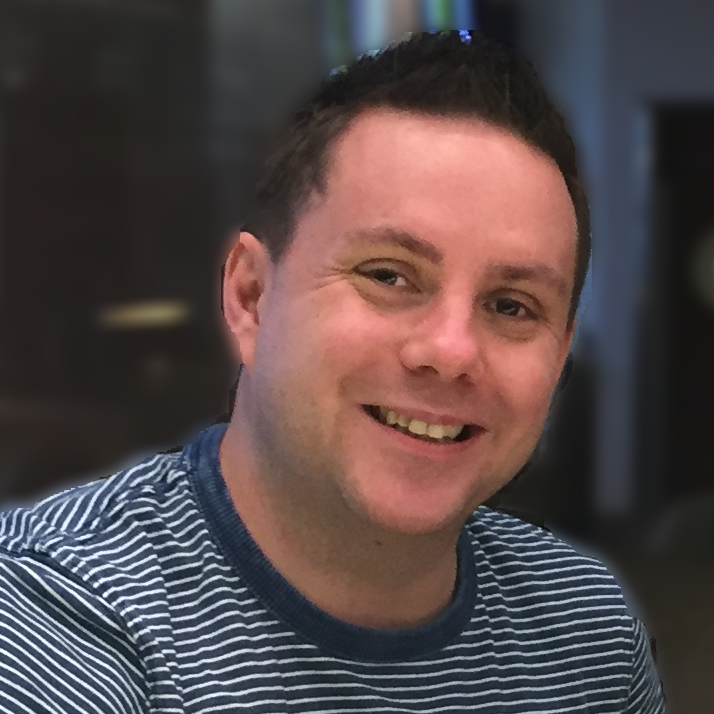 Brian is responsible for Google Cloud in Higher Education across Europe and the Middle East. Brian has vast experience in both the ICT industry and the education sector, working in many countries across the globe with Ministries of Education, education districts and universities. With hands-on experience designing, architecting and deploying large scale enterprise solutions for millions of education users, Brian brings insight and knowledge of the requirements, challenges and considerations for Higher Education customers. Brian is excited to help universities use Google’s capabilities in big data, compute, analytics and machine learning to support universities and researchers in critical areas like genomics and climate change. Using Google's vast resources to help university IT departments do things faster and cheaper.
Brian is responsible for Google Cloud in Higher Education across Europe and the Middle East. Brian has vast experience in both the ICT industry and the education sector, working in many countries across the globe with Ministries of Education, education districts and universities. With hands-on experience designing, architecting and deploying large scale enterprise solutions for millions of education users, Brian brings insight and knowledge of the requirements, challenges and considerations for Higher Education customers. Brian is excited to help universities use Google’s capabilities in big data, compute, analytics and machine learning to support universities and researchers in critical areas like genomics and climate change. Using Google's vast resources to help university IT departments do things faster and cheaper.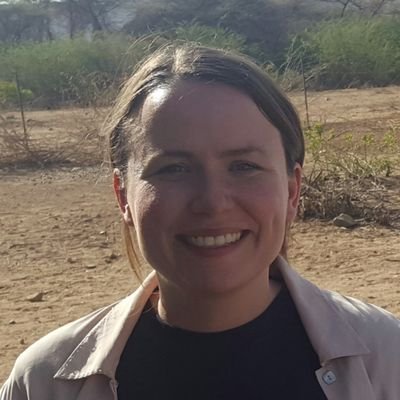 Amy O'Donnell is an adviser on applications of information communications technologies (ICTs) to support programming at Oxfam GB. Her role involves supporting staff working in humanitarian response, campaigning and long-term development to explore effective design and best practice in the use of ICTs. This involves working with programmes to establish the enabling role ICTs can play in improving quality, efficiency and reach.
Amy O'Donnell is an adviser on applications of information communications technologies (ICTs) to support programming at Oxfam GB. Her role involves supporting staff working in humanitarian response, campaigning and long-term development to explore effective design and best practice in the use of ICTs. This involves working with programmes to establish the enabling role ICTs can play in improving quality, efficiency and reach.
